第10章 "INDEPNDENCE OR DEATH"(3)
Up through the passes and across bleak plateaus the little army struggled till it reached the banks of the rivulet of Boyaca, in the very heart of New Granada. Here, on the 7th of August, Bolivar inflicted on the royalist forces a tremendous defeat that gave the deathblow to the domination of Spain in northern South America. On his triumphal return to Angostura, the Congress signalized the victory by declaring the whole of the viceroyalty an independent state under the name of the "Republic of Colombia"and chose the Liberator as its provisional President. Two years later, a fundamental law it had adopted was ratified with certain changes by another Congress assembled at Rosario de Cucuta, and Bolivar was made permanent President.
Southward of Colombia lay the viceroyalty of Peru, the oldest, richest, and most conservative of the larger Spanish dominions on the continent. Intact, except for the loss of Chile, it had found territorial compensation by stretching its power over the provinces of Quito and Charcas, the one wrenched off from the former New Granada, the other torn away from what had been La Plata. Predominantly royalist in sentiment, it was like a huge wedge thrust in between the two independent areas. By thus cutting off the patriots of the north from their comrades in the south, it threatened both with destruction of their liberty.
Again fortune intervened from abroad, this time directly from Spain itself. Ferdinand VII, who had gathered an army of twenty thousand men at Cadiz, was ready to deliver a crushing blow at the colonies when in January, 1890, a mutiny among the troops and revolution throughout the country entirely frustrated the plan.
But although that reactionary monarch was compelled to accept the Constitution of 1819, the Spanish liberals were unwilling to concede to their fellows in America anything more substantial than representation in the Cortes. Independence they would not tolerate. On the other hand, the example of the mother country in arms against its King in the name of liberty could not fail to give heart to the cause of liberation in the provinces oversea and to hasten its achievement.
The first important efforts to profit by this situation were made by the patriots in Chile. Both San Martin and O'Higgins had perceived that the only effective way to eliminate the Peruvian wedge was to gain control of its approaches by sea. The Chileans had already won some success in this direction when the fiery and imperious Scotch sailor, Thomas Cochrane, Earl of Dundonald, appeared on the scene and offered to organize a navy. At length a squadron was put under his command. With upwards of four thousand troops in charge of San Martin the expedition set sail for Peru late in August, 1820.
While Cochrane busied himself in destroying the Spanish blockade, his comrade in arms marched up to the very gates of Lima, the capital, and everywhere aroused enthusiasm for emancipation. When negotiations, which had been begun by the viceroy and continued by a special commissioner from Spain, failed to swerve the patriot leader from his demand for a recognition of independence, the royalists decided to evacuate the town and to withdraw into the mountainous region of the interior. San Martin, thereupon, entered the capital at the head of his army of liberation and summoned the inhabitants to a town meeting at which they might determine for themselves what action should be taken. The result was easily foreseen. On July 28, 1821, Peru was declared independent, and a few days later San Martin was invested with supreme command under the title of "Protector."But the triumph of the new Protector did not last long. For some reason he failed to understand that the withdrawal of the royalists from the neighborhood of the coast was merely a strategic retreat that made the occupation of the capital a more or less empty performance. This blunder and a variety of other mishaps proved destined to blight his military career.
Unfortunate in the choice of his subordinates and unable to retain their confidence; accused of irresolution and even of cowardice; abandoned by Cochrane, who sailed off to Chile and left the army stranded; incapable of restraining his soldiers from indulgence in the pleasures of Lima; now severe, now lax in an administration that alienated the sympathies of the influential class, San Martin was indeed an unhappy figure. It soon became clear that he must abandon all hope of ever conquering the citadel of Spanish power in South America unless he could prevail upon Bolivar to help him.